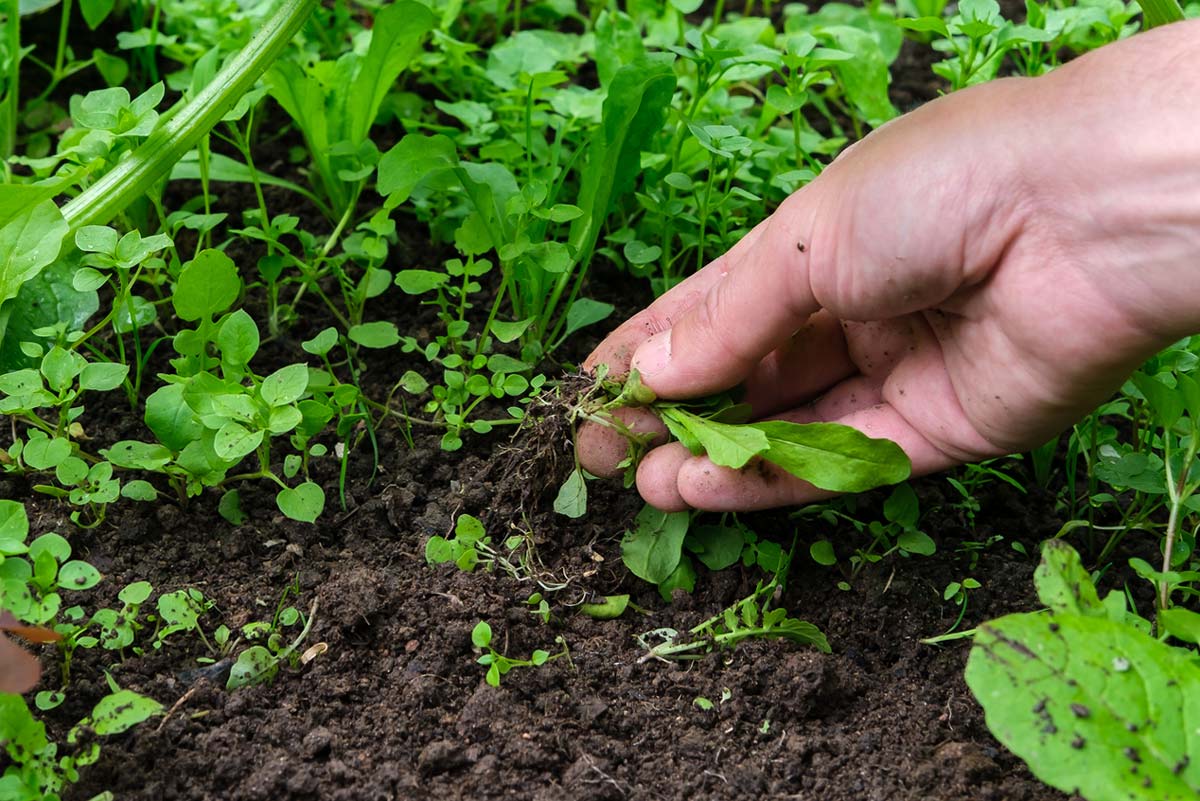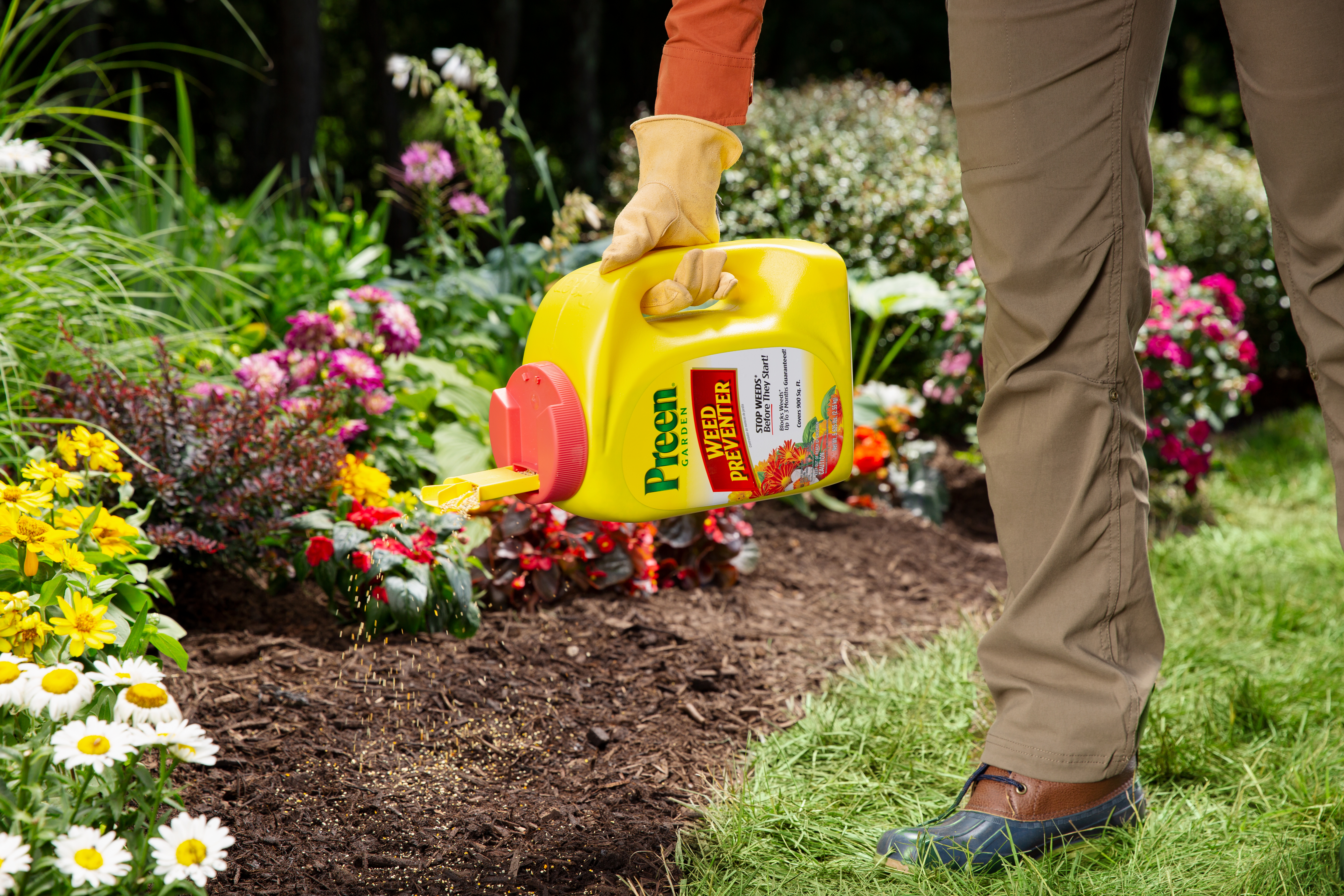How the Weeds of Spring Get Their Start in Winter
These 5 common winter annual weeds get established in your garden well before spring. Here's how to control them.
One of the most common early-season weeds is a short mat-former with dainty white flowers known as common chickweed (Stellaria media).
European native chickweed seeds so well and grows in such a wide range of conditions that it’s become common in lawns, garden beds, and farm fields throughout the United States and Canada.
Common chickweed is a winter annual. Winter annual weeds sprout from seed each fall or early spring, then flower and drop new seed to keep the species growing year after year. Plants die in summer after they have completed their procreation work.
Chickweed’s profuse seeding ability explains why it’s such a widespread weed. A typical common chickweed plant can produce 25,000 seeds each year, and some of those seeds can remain viable in the soil for up to 10 years or more.

Remove chickweed before it flowers.
A saving grace of a chickweed outbreak is that they’re not well-rooted and therefore pull out easily.
Weeding tools can easily uproot chickweed plants growing in flower and vegetable gardens and between landscape shrubs and evergreens.
Chickweed also can be killed with spot-sprays of non-selective herbicides and even most liquid broad-leaf herbicides. Check the label to be sure chickweed is listed under “weeds controlled.”
Be careful not to allow spray to drift onto desirable plants, and follow all other label instructions.
In the lawn, chickweed plants can be spot-sprayed with common broad-leaf herbicides formulated for use in lawns (i.e. ones that kill broad-leaf plants but not grass).
Granular lawn weed killers are effective for wider chickweed infestations, including Preen One Lawncare and Preen Lawn Weed Control.

Apply Preen in early fall and spring to control common chickweed.
Chickweed flowers and sets seeds at the same time, so it's important to remove plants from garden beds before they bloom. Each plant stopped can deprive the “seed bank” of an average deposit of 25,000 new seeds per plant.
New plants still can grow, though, from previous years’ dormant seeds or new seeds finding their way into the yard. Both Preen Garden Weed Preventer and Preen Extended Control Weed Preventer are effective in stopping chickweed seeds from germinating. Late summer to early fall and early spring are the best times for season-long prevention of chickweed.
In garden beds, a two- to three-inch layer of mulch can help smother chickweed seeds and prevent new plants from emerging. Preen Mulch with Extended Control Weed Preventer is a bagged mulch with a granular weed preventer for two-prong protection.
In the lawn, the best defense against chickweed invasion is to encourage thick grass, which eliminates space for any new weed to sprout. Regular fertilizing and overseeding the lawn with additional grass seed can help with that.